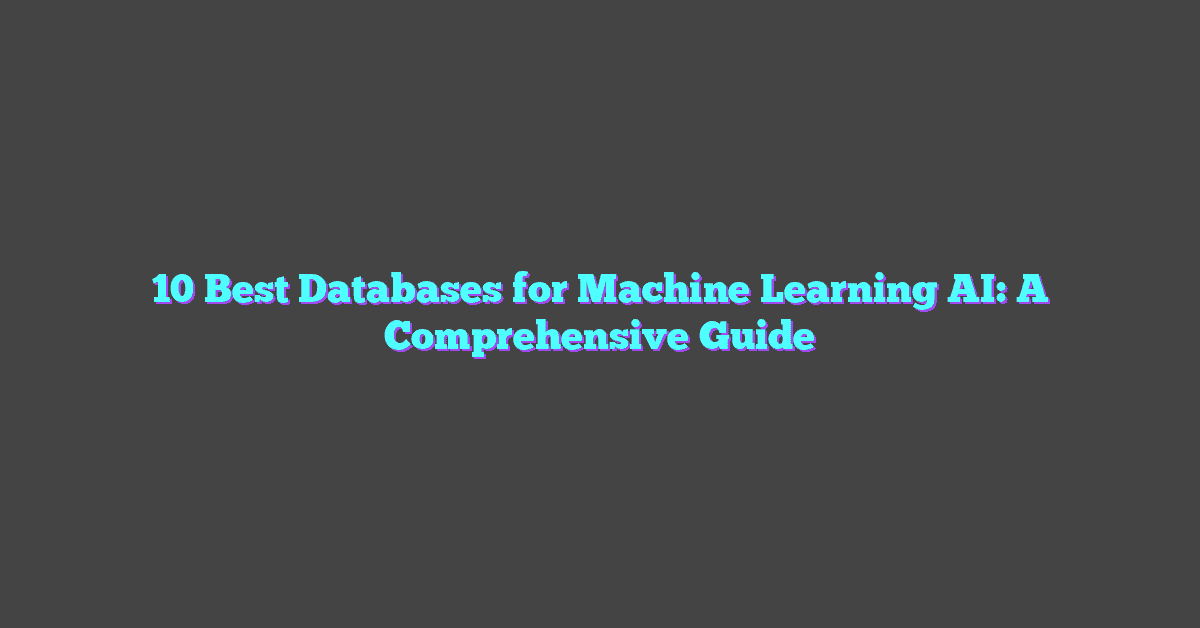Key Takeaways
- Streamlined Production: AI tools simplify podcast creation by assisting with topic brainstorming, script generation, and automated audio editing.
- Enhanced Audio Quality: Utilize AI-powered software to remove background noise, balance audio levels, and eliminate filler words for professional-sounding recordings.
- Optimized Distribution: AI analyzes listener data to determine the best platforms and times to publish, maximizing reach and engagement.
- Efficient Marketing: Leverage AI for personalized marketing campaigns, SEO optimization, and social media automation to grow your audience effectively.
- Actionable Insights: Gain deep listener insights through AI analytics, enabling you to tailor content to audience preferences and improve overall satisfaction.
- Cost and Time Savings: Automating repetitive tasks with AI reduces both production time and costs, allowing you to focus on delivering high-quality content.
Starting a podcast has never been easier, especially with the help of AI. Aspiring podcasters can now streamline their creative process and focus on what truly matters—delivering great content to their audience.
AI assistance offers tools for brainstorming topics, editing audio, and even optimizing distribution strategies. By leveraging these technologies, anyone can create a professional-sounding podcast without the steep learning curve. Embracing AI not only simplifies the technical aspects but also allows creators to connect more deeply with their listeners.
Benefits of AI Assistance in Podcasting
AI enhances podcasting by automating essential tasks, allowing creators to focus on content quality. Content Creation benefits from AI-driven topic suggestions and script generation, ensuring relevant and engaging episodes. Audio Editing improves with AI tools that automatically remove background noise, balance audio levels, and edit out filler words, resulting in professional-sounding recordings. Distribution Optimization leverages AI to identify the best platforms and times to publish episodes, increasing listener reach and engagement.

Listener Insights are gained through AI analytics that track audience behavior, preferences, and feedback. This data helps podcasters tailor content to meet listener demands effectively. Personalization features enable podcasters to deliver customized experiences, such as targeted advertisements and content recommendations, enhancing listener satisfaction. Additionally, Time Efficiency is achieved as AI handles repetitive tasks like transcribing episodes and managing social media promotions, reducing the overall production time.
Cost Reduction is another significant benefit, as AI tools eliminate the need for extensive manual labor and expensive software. By integrating AI assistance, podcasters can maintain high production standards while minimizing expenses. Ultimately, AI assistance in podcasting leads to a more streamlined production process, improved content quality, and a stronger connection with the audience.
Essential AI Tools for Starting Your Podcast
AI technologies streamline various aspects of podcast production, enhancing both quality and efficiency.
AI Editing Software
AI editing software automates audio cleanup and enhances sound quality. Tools like Adobe Podcast remove background noise and balance audio levels, ensuring professional-sounding recordings. Descript offers transcription and editing features that allow seamless content modifications. By leveraging these tools, podcasters save time on manual editing and focus on delivering engaging content. Additionally, AI-driven features such as automatic chaptering and filler word removal optimize the listening experience.
AI Content Generation
AI content generation tools assist in developing compelling podcast episodes. ChatGPT generates topic ideas, script outlines, and dialogue, facilitating content planning. Copy.ai provides assistance in crafting engaging introductions and episode summaries, ensuring consistency and relevance. Jasper aids in creating interview questions and expanding on key points, enhancing the depth of discussions. These tools enable podcasters to maintain a steady flow of high-quality content, catering to their audience’s interests and preferences.
Step-by-Step Guide to Starting a Podcast with AI
Starting a podcast with AI assistance streamlines the process, making it efficient and accessible.
Planning and Scripting with AI
AI tools simplify podcast planning by generating topic ideas and structuring episodes. Platforms like ChatGPT create detailed outlines and scripts, ensuring content stays relevant. Machine learning algorithms analyze listener trends to suggest subjects that resonate with the target audience. These tools also offer language enhancements, refining scripts for clarity and engagement. By automating the scripting process, podcasters maintain a consistent content flow and focus on delivering high-quality episodes.
Automating Recording and Editing
Automated recording tools, such as Descript and Adobe Podcast, enhance audio quality without manual intervention. AI-driven noise reduction eliminates background sounds, while automatic leveling ensures balanced audio. Machine learning models identify and remove filler words, creating a polished final product. Additionally, AI schedules recordings and manages multiple audio tracks, streamlining the editing process. This automation reduces production time, allowing podcasters to concentrate on content creation and audience engagement.
Marketing and Growing Your Podcast Using AI
AI enhances podcast marketing by automating audience targeting and optimizing engagement strategies. Machine learning algorithms analyze listener data to identify demographics and preferences, ensuring content reaches the right audience. Tools like HubSpot and Mailchimp leverage AI to segment listeners, enabling personalized email campaigns that increase subscriber rates.
Content personalization improves listener retention through tailored recommendations and targeted advertisements. Platforms such as Spotify and Apple Podcasts utilize AI to suggest episodes based on user behavior, boosting discoverability and listener satisfaction. Personalization algorithms adjust content delivery, fostering a more engaging listener experience.
Social media automation streamlines promotion by scheduling posts and analyzing performance metrics. Tools like Hootsuite and Buffer use AI to determine optimal posting times and content types, maximizing reach and interaction. Automated responses and chatbot integration maintain active engagement with the audience, enhancing community building.
SEO optimization increases podcast visibility on search engines and directories. AI-powered tools like SEMrush and Ahrefs identify relevant keywords and trends, guiding content creation and metadata enhancement. Optimized titles, descriptions, and tags improve search rankings, attracting more listeners.
Analytics and insights provide actionable data to refine marketing strategies. AI-driven platforms such as Google Analytics and Chartable track listener behavior, episode performance, and growth trends. Detailed reports highlight areas for improvement and guide data-informed decision-making, ensuring continuous podcast growth.
| AI Tool | Function | Benefits |
|---|---|---|
| HubSpot | Audience segmentation | Personalized email campaigns |
| Mailchimp | Email automation | Increased subscriber rates |
| Spotify | Content recommendation | Enhanced discoverability |
| Hootsuite | Social media scheduling | Maximized reach and engagement |
| SEMrush | SEO keyword analysis | Improved search rankings |
| Google Analytics | Listener behavior tracking | Data-informed decision-making |
AI-driven marketing strategies enable podcasters to efficiently grow their audience and enhance engagement. By leveraging automation, personalization, and data analytics, creators can focus on producing quality content while AI handles the complexities of marketing and audience management.
Potential Challenges and How to Overcome Them
Integrating Multiple AI Tools
Deploying various AI tools can complicate workflows. Streamlining processes by selecting compatible software ensures seamless integration. For example, using Adobe Podcast with ChatGPT facilitates efficient content creation and editing.
Ensuring Data Privacy
Handling listener data with AI tools raises privacy concerns. Implement robust security measures and comply with regulations like GDPR. Utilizing platforms with built-in security features minimizes risks and protects audience information.
Maintaining Content Authenticity
AI-generated content may lack a personal touch. Balancing automation with human input preserves authenticity. Incorporating personal anecdotes and unique perspectives alongside AI assistance enhances relatability and engagement.
Managing AI Limitations
AI tools may not fully understand nuanced topics. Supplement AI-generated suggestions with thorough research to ensure accuracy. For instance, verifying script outlines with expert sources maintains content credibility.
Overcoming the Learning Curve
Mastering AI technologies requires time and effort. Accessing tutorials and training resources accelerates proficiency. Participating in online courses or webinars helps podcasters effectively utilize AI tools.
Addressing Technical Glitches
Technical issues with AI software can disrupt production. Implementing regular updates and backups prevents data loss and minimizes downtime. Having contingency plans ensures continuity during unexpected technical problems.
Balancing Automation and Creativity
Over-reliance on AI may hinder creative processes. Encouraging creative brainstorming sessions alongside AI tools fosters innovation. Combining automated efficiency with human creativity results in compelling podcast content.
Cost Management
Investing in AI tools involves financial considerations. Evaluating cost-effectiveness and selecting tools that offer scalable pricing plans manage expenses effectively. Prioritizing essential AI features supports budget-friendly podcast production.
Adapting to Rapid AI Advancements
AI technology evolves quickly, necessitating continual adaptation. Staying informed about the latest developments and regularly updating tools maintains competitive advantage. Engaging with AI communities provides insights into emerging trends and best practices.
Ensuring High-Quality Audio Production
AI can assist in audio editing, but achieving perfect sound quality may require additional steps. Utilizing specialized audio equipment alongside AI tools enhances overall production quality. Regularly reviewing and refining audio outputs ensures professional-sounding podcasts.
Conclusion
Starting a podcast with AI assistance opens up a world of possibilities for creators. With the right tools, anyone can produce high-quality content and reach a wider audience effortlessly. AI handles the technical tasks allowing podcasters to focus on their unique voice and creative ideas.
Embracing AI not only simplifies production but also enhances engagement through personalized content and smart distribution strategies. This blend of technology and personal touch ensures a more streamlined and enjoyable podcasting journey. As AI continues to evolve, podcasters can look forward to even greater support in building and growing their shows.




